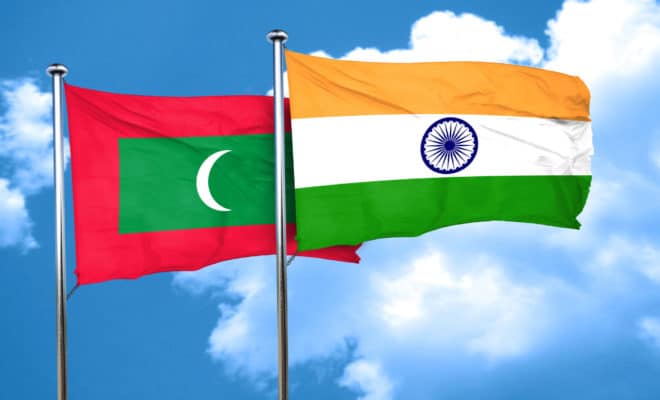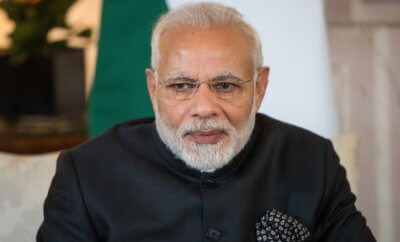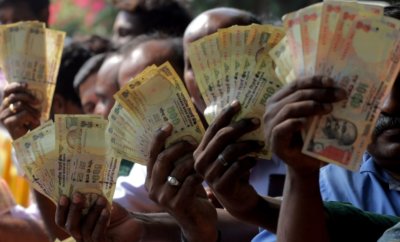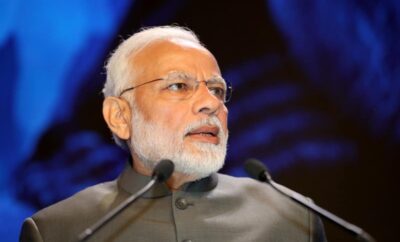Politics
Anti-India Editorial on Maldives Website Withdrawn After Backlash

Maldives flag with India flag
Bigstock
The editorial criticized India for viewing Maldives with “envy, self-interest and hostility.”
An anti-India editorial in a Maldives’ government-run website that called Prime Minister Narendra Modi “a Hindu extremist” has been withdrawn after facing criticism from the opposition.
The opposition coalition, Maldivian Democratic Party (MDP), said in a statement that Vaguthu was a “mouthpiece of President Abdulla Yameen whose editorials are routinely approved by the President’s Office prior to publication.”
The article on Vaguthu said that India was not a best friend but an enemy of Maldives and that it viewed the Archipelago nation with “envy, self-interest and hostility.” It also accused India of violating international law in Kashmir, and added that Modi has a history of carrying out extreme actions against Muslims.
The editorial said India was envious of the Maldives for several reasons, such as its increased relations with China. It is time to find a new best friend to work with on the global stage, it added, according to Maldives Independent.
Two former presidents – Mohamed Nasheed and Maumoon Abdul Gayoom – condemned the article.
I condemn the article in Vaguthu that brands India as an enemy of Maldives. Outrageous! No Maldivian in his right mind would subscribe to such views. India has been and remains a vey close and trusted friend of Maldives. https://t.co/3DVilUkXej
— Maumoon Abdul Gayoom (@maumoonagayoom) December 19, 2017
Strongly condemn anti-India diatribe in regime mouthpiece Vaguthu. Prez YAG’s reckless foreign policy is destroying our relationship with India. Maldives must be sensitive to India’s security and safety.
— Mohamed Nasheed (@MohamedNasheed) December 19, 2017
Relations between India and Maldives were frayed after the latter signed a Free Trade Agreement (FTA) with China. Since then, three councillors have been suspended for meeting Akhilesh Mishra, the Indian envoy in Male. The meeting was dubbed as “unauthorized” since a circular asking all local government bodies to seek the home ministry’s permission before meeting foreign diplomats was issued.
Until now, India has had a stronghold in the subcontinent and the Indian Ocean, but Maldives’ trade agreement was another step taken by China to increase its influence in the region. Whether it’s the Gwadar port in Pakistan, Sri Lanka’s Hambantota port, or the Left alliance’s victory in Nepal elections, the influence of China in the subcontinent has been steadily growing.
India, which was reportedly taken aback with the FTA, responded saying that it welcomes the agreement as long as it doesn’t disturb the peace in the region. It did not respond to the editorial or the matter of the suspended councillors in Maldives.




You must be logged in to post a comment Login